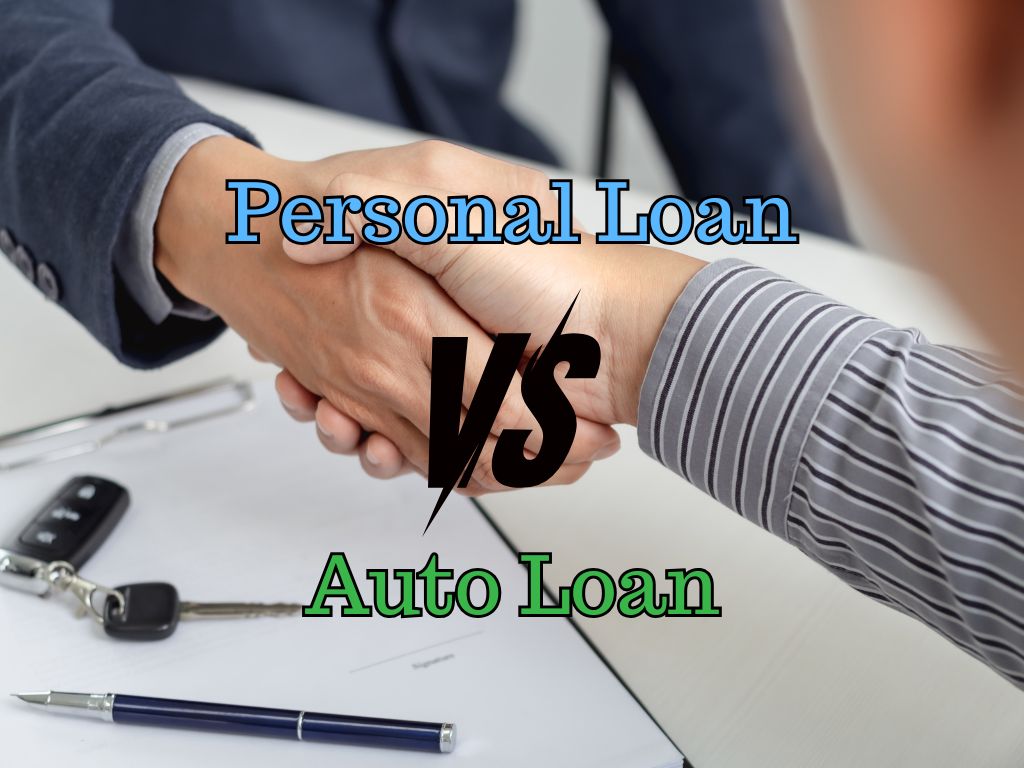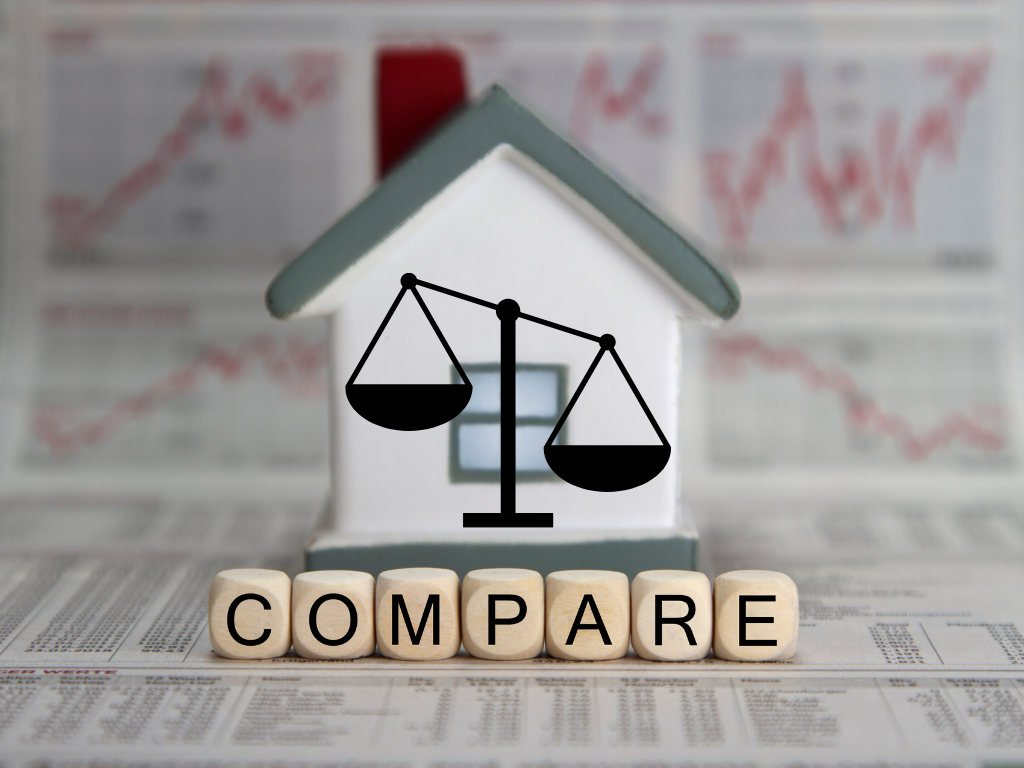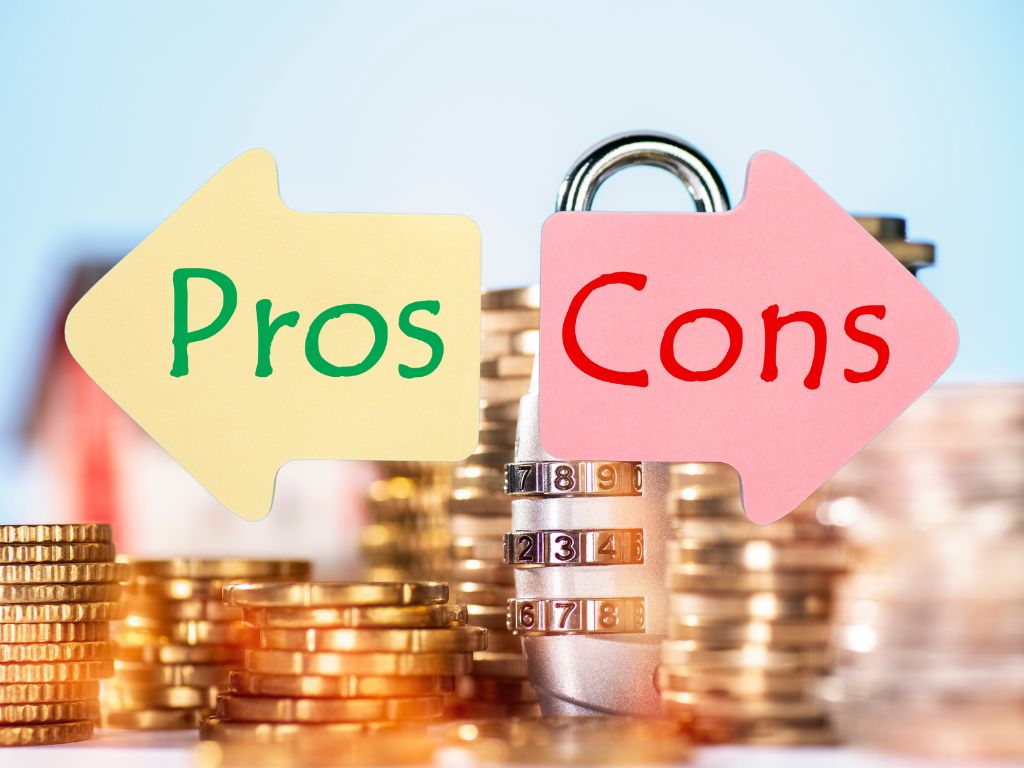Introduction
Personal loan vs auto loan which is right for you? If you’re planning to finance a car, understanding the differences between these two options could save you money and help you avoid long-term debt.
A personal loan gives you more flexibility and can be used for almost anything, including buying a car. An auto loan, on the other hand, is designed specifically for vehicle purchases and often comes with lower interest rates because the car secures the loan.
Choosing between them isn’t always simple. It depends on your credit, your budget, and how much control you want over the terms.
In this guide, we’ll break down the key features, pros and cons, and ideal use cases for both loan types. By the end, you’ll know which one fits your situation best and how to move forward confidently.
Key Takeaways
- Personal loans offer flexibility and can be used for more than just buying a car but typically come with higher interest rates.
- Auto loans are designed specifically for vehicle purchases and usually offer lower rates since the car serves as collateral.
- A personal loan may be a better option if you need funds beyond the car or want to avoid restrictions on vehicle type.
- An auto loan may be ideal if you want lower rates and don’t mind the lender holding the vehicle as collateral.
- Approval for either loan depends on factors like your credit score, income, and debt-to-income ratio.
- Understanding how each loan works helps you choose the best option for your financial situation and long-term goals.
Disclaimer: This site contains affiliate links. If you make a purchase, we may earn a commission at no extra cost to you.

Key differences between personal loans and auto loans
Understanding the real differences between a personal loan and an auto loan helps you choose the better option for your financial needs. While both let you borrow money, the way you get approved, how you repay, and what you risk are not the same.
Personal loans are unsecured, meaning they don’t require you to offer up the car or any other asset as collateral. This makes them more flexible, you can use the funds for the vehicle, repairs, registration, or anything else. But because there’s no collateral, lenders take on more risk, and that usually means higher interest rates and stricter credit requirements.
Auto loans are secured loans that use the vehicle itself as collateral. They’re purpose-built for car purchases, which means lenders often offer lower interest rates. However, if you miss payments, the lender can repossess the car. These loans typically come with longer repayment terms, which can lower your monthly payment but increase total interest costs over time.
The right loan depends on whether you want flexibility or lower costs and whether you’re comfortable putting the car up as security.

💡Personal Loan vs Auto Loan (At a Glance)
Not sure which loan type fits your situation best? This quick side-by-side breakdown highlights the biggest differences between personal loans and auto loans — including how they’re structured, what they’re best used for, and what risks you need to consider. Use this as a reference before applying or speaking with a lender.
| Feature | Personal Loan | Auto Loan |
|---|---|---|
| Purpose | Any (car, bills, repairs, etc.) | Vehicle purchase only |
| Collateral Required | ❌ No | ✅ Yes (the vehicle) |
| Interest Rate | Higher (6%–36%) | Lower (3%–12%) |
| Repayment Terms | 12–60 months | 36–84 months |
| Approval Criteria | Credit + income | Credit + income + vehicle value |
| Used for Private Sale | ✅ Yes | 🚫 Usually not |
| Risk of Repossession | ❌ None | ✅ Yes |
📝 Bottom line:
If you’re looking for flexibility and don’t want to use your car as collateral, a personal loan gives you more freedom but usually at a higher cost.
On the other hand, if you’re focused solely on buying a car and want the lowest possible interest rate, an auto loan is often the better financial choice — just remember, the car is on the line if you fall behind on payments.

Personal Loan vs Auto Loan: When Is Each Option Best?
Understanding when to choose a personal loan versus an auto loan can help you save money and avoid unnecessary debt. The best option depends on your financial goals, the type of car you’re buying, and how you plan to use the loan.
When to Choose a Personal Loan
- You need flexibility: If you want to use part of the money for more than just the vehicle like repairs, taxes, or registration a personal loan gives you full control of how to use the funds.
- You’re buying from a private seller: Some private-party sales don’t qualify for auto loan financing. A personal loan makes these deals easier to close.
- You don’t want the car as collateral: If you’d rather not risk repossession, an unsecured personal loan avoids tying the debt to the vehicle.
When to Choose an Auto Loan
- You want the lowest rate possible: Auto loans often have lower interest rates because the car acts as collateral.
- You’re buying from a dealership: Auto loans are designed for car purchases and often come with special offers or dealer financing incentives.
- You need a longer repayment term: Auto loans can offer longer terms, keeping your monthly payments lower even on more expensive vehicles.

Personal Loan vs Auto Loan: Steps to Apply for Both Loan Types
Whether you’re considering a personal loan or an auto loan, the application process can move quickly if you’re prepared. Here’s a breakdown of what to expect with each option:
Steps to Apply for a Personal Loan
- Check your credit score: Lenders use your credit score to decide if you qualify and what interest rate to offer.
- Compare lenders: Look at online lenders, banks, and credit unions to find the best rates, repayment terms, and fees.
- Prequalify if possible: Some lenders allow you to check your eligibility without affecting your credit.
- Gather your documents: This typically includes proof of income, identification, and bank statements.
- Apply online or in person: Submit your application and wait for approval, which can come within a few hours to a few days.
- Review and accept terms: If approved, review the loan agreement, sign, and receive funds often by direct deposit.
Steps to Apply for an Auto Loan
- Determine your budget: Know how much you can afford, including your down payment, monthly payment, and other vehicle costs.
- Check your credit report: Auto loans often favor those with strong credit, but there are options for lower scores too.
- Get preapproved: Preapproval helps you know what you can spend and gives you leverage at the dealership.
- Compare rates: Look at offers from banks, credit unions, online lenders, and dealer financing.
- Finalize the loan at purchase: Once you choose a vehicle, you’ll complete the loan paperwork and agree to the terms before driving off.
🕒 How Loan Term Affects Interest Paid Over Time
Choosing a longer loan term might lower your monthly payment — but it often means paying more in total interest.
This table shows how loan duration impacts the total cost of borrowing, even when the interest rate stays the same. It’s a reminder that “cheaper per month” doesn’t always mean “cheaper overall.”
Example loan: $20,000 at 7% APR
| Loan Term | Monthly Payment | Total Interest Paid | Total Repayment |
|---|---|---|---|
| 36 months | $618.65 | $2,271.53 | $22,271.53 |
| 48 months | $478.92 | $3,388.16 | $23,388.16 |
| 60 months | $396.02 | $3,761.23 | $23,761.23 |
| 72 months | $341.34 | $4,576.42 | $24,576.42 |
| 84 months | $304.15 | $5,548.58 | $25,548.58 |
💡 What this means for you:
A lower monthly payment can seem appealing, especially if you’re on a tight budget — but you’ll pay significantly more in interest over the life of the loan.
If you can afford a slightly higher monthly payment, choosing a shorter loan term is usually the smarter long-term financial move.

🚦 Best Loan Type by Scenario
Not sure which loan type fits your specific situation?
Use this table to quickly match real-life scenarios with the best loan option. Whether you’re buying from a dealer or need extra flexibility, the right choice depends on your priorities, not just the interest rate.
| Scenario | Best Loan Type | Why It Works Best |
|---|---|---|
| You’re buying a car from a dealership | Auto Loan | Designed specifically for vehicle purchases, often with lower interest rates and dealer incentives. |
| You’re buying a used car from a private seller | Personal Loan | More flexible — no need for lender-verified vehicle or collateral. Funds can be used however needed. |
| You want to borrow more than just the car price (for taxes, repairs, or insurance) | Personal Loan | Lets you borrow extra and use it for any purpose, including car-related expenses. |
| You have excellent credit and want the lowest interest rate | Auto Loan | Secured loans typically come with lower APRs when your credit is strong. |
| You want to avoid risking the car as collateral | Personal Loan | Unsecured, so the car isn’t at risk if you default — though missed payments will still hurt your credit. |
| You’re financing a classic or specialty car | Personal Loan | Many auto lenders won’t finance non-standard or older vehicles. A personal loan gives you more control. |
💡 Bottom line:
The best loan depends on how you’re buying, what you’re buying, and how much flexibility you need. Auto loans usually win on cost, but personal loans win on freedom. Match the loan to your needs — not just the price tag.

Pros and Cons of Personal Loans vs Auto Loans
Choosing between a personal loan and an auto loan depends on what matters most: flexibility, interest rate, or repayment terms. Each option has trade-offs that affect the total cost and borrowing experience.
Pros of Personal Loans
- Flexible use of funds: You’re not restricted to a vehicle purchase. You can use part of the loan for taxes, registration, or even unrelated expenses.
- No vehicle collateral required: The car isn’t at risk if you miss payments, though your credit will still be affected.
- Easier to buy from private sellers: You can use the funds anywhere, including non-traditional sellers like individuals.
Cons of Personal Loans
- Higher interest rates: Personal loans are unsecured, so lenders charge more to offset the risk.
- Shorter repayment terms: This often leads to higher monthly payments.
- Stricter credit requirements: Lenders rely heavily on your credit profile since there’s no collateral to secure the loan.
Pros of Auto Loans
- Lower interest rates: Since the car serves as collateral, rates are usually more favorable.
- Longer repayment periods: Auto loans often come with terms up to 72 or even 84 months, keeping monthly payments manageable.
- Vehicle-focused financing: Loan terms are tailored to match the value and lifespan of the vehicle.
Cons of Auto Loans
- The vehicle secures the loan: Missed payments can lead to repossession.
- Limited use of funds: You can only use the money to buy a car, not for additional fees or unrelated expenses.
- Dealer markup risks: Financing through a dealership may include hidden fees or higher rates.

Conclusion: Making the Right Choice
Choosing between a personal loan and an auto loan comes down to your financial goals and the kind of flexibility you need. If you want lower interest rates and plan to use the vehicle as collateral, an auto loan is often the better option. But if you’re buying from a private seller, want to avoid collateral, or need flexibility in how you use the funds, a personal loan might make more sense.
Start by reviewing your credit score, comparing interest rates, and calculating your monthly budget. Understanding the pros and cons of each option will help you borrow smarter and avoid unnecessary costs.
If you’re still weighing your options and want to learn more about how secured loans compare, check out our secured vs unsecured personal loan guide. It’s a great next step if you’re trying to better understand which type of loan aligns with your credit profile and long-term plans.

Frequently Asked Questions (FAQs)
Is it better to take out a personal loan or an auto loan?
It depends on your needs. Auto loans often come with lower interest rates because the car secures the loan. Personal loans offer more flexibility but usually have higher rates.
Can a personal loan be used to buy a car?
Yes. You can use a personal loan to buy a car from a dealer or a private party. However, rates may be higher compared to traditional auto loans.
Does taking a personal loan hurt your credit more than an auto loan?
No. Both loan types affect your credit similarly. The key is how you manage repayment. Missed payments on either can lower your score.
What would monthly payments look like on a $30,000 personal loan vs. auto loan?
Auto loans generally have lower monthly payments due to longer terms and lower interest rates. A personal loan may cost more monthly and overall.
Is a used car loan better than a personal loan for financing a car?
If you qualify, a used car loan will likely offer better terms. Personal loans may be a backup if you can’t get approved for auto financing.
Does getting a bank loan differ from a dealership auto loan?
Yes. Bank loans may offer better terms if you have strong credit. Dealership loans can be convenient but might include higher fees or rates.
0 Comments